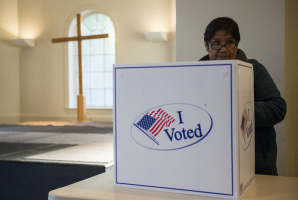Advocates for sexual abuse survivors blast Grammys’ promotion of prostitution, porn culture

A major television watchdog group and an anti-porn organization that advocates for sexual abuse survivors are pushing back against the Grammys for featuring sexually explicit content during prime-time viewing hours and normalizing prostitution and porn culture.
During Sunday's awards show that aired on CBS, the program featured a performance of the hit song “WAP,” which stands for wet a-- p---- by artist Cardi B and Megan Thee Stallion.
“In a performance that could have been cut from a hardcore pornography film, CBS allowed a glamorization of stripping and prostitution to be broadcast in front of a national audience — a portion of which were children — for no other reason than for TV ratings,” said Dawn Hawkins, senior vice president and executive director of the National Center on Sexual Exploitation, in a statement shared with The Christian Post.
Even though the song is popular, that kind of performance should never have been allowed at the Grammys, Hawkins asserted.
“Prostitution and stripping are never empowering for women, as they set up systems that exploit and oppress women. CBS has contributed to furthering the sexual exploitation of women and contributed to the ‘normalization’ of porn culture,” Hawkins added.
Parents Television Council President Tim Winter described the performance as "entirely unfit for a primetime network television broadcast."
"Artists have every right to confound empowerment with debasement, and sexiness with debauchery, but a broadcast television network carries a higher standard — especially during the times when children are likely to be in the audience. Shame on CBS,” said Winter in a statement released Monday.
Jim Denison of the Denison Forum noted that he remembers the “wardrobe malfunction” from the 2004 Super Bowl where artist Justin Timberlake tore off part of Janet Jackson’s blouse and exposed her breast during the final moments of the halftime show.
The Federal Communications Commission fined CBS and several of its affiliates $550,000 as a result of the incident, but the U.S. Supreme Court ultimately tossed those fines.
“Now it seems that we are subjected to such ‘malfunctions’ on prime time television regularly,” Denison mused.
Twitter users had mixed reactions, with some taking to the platform to celebrate the performance, while others voiced disgust given that children could be watching.
NCOSE added in a Monday blog post that the performance “highlights long-standing issues of systemic racial and sexual injustice that still pervade in our society and which are grossly profited on by corporations,” like major media companies which deceptively frame the exploitation as empowering.
“[A]s feminism championed the rights of women and the civil rights movement did the same for people of color, many of those who 'benefited' the most from those oppressive systems — a cohort that is predominantly affluent, powerful, and white — only had to slightly tweak their ‘PR’ so they could continue to traffic in and profit from racist and sexist themes through the commercial sex industry. All under the banner of 'empowerment,' NCOSE said.
Normalizing the commercial sex industry and other oppressive systems like strip clubs is not about understanding and celebrating unique cultural representations and expressions of sexuality, the organization added.
“Instead of empowerment, CBS allowed the propagation of regressive themes that reinforce and normalize racial and sexual injustice,” NCOSE said.



























